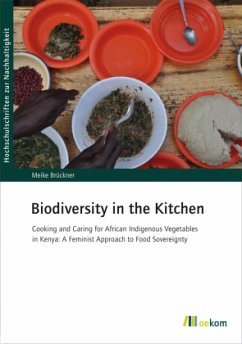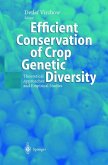The role of biodiversity in shaping a sustainable future has never been clearer. But conserving biodiversity means more than being able to use genetic diversity for medicines or agriculture. This book reveals how biodiversity is also vital for socio-cultural well-being. It critically assesses the practices and politics of biodiversity and food, while attending to questions of gender and care. The book focuses on African Indigenous Vegetables in Kenya. Despite being largely forgotten, these vegetables continue to play an important role in the communities' daily nutrition and livelihood. The author also analyzes the nexus between colonial politics, commercialization in agriculture, and practices of reciprocity and collaboration.This rich empirical study offers a new entry point to the debate on biodiversity, food, and gender. The book establishes the idea of »meal sovereignty«, providing a feminist vision of food sovereignty that cultivates careful socio-ecological relations. The framework conceptualizes production and consumption as coupled practices. In this way, the author uncovers the flaws and limitations of existing food policies and demonstrates that women's practice and knowledge is a critical tool in creating meal sovereignty and protecting biodiversity.
Hinweis: Dieser Artikel kann nur an eine deutsche Lieferadresse ausgeliefert werden.
Hinweis: Dieser Artikel kann nur an eine deutsche Lieferadresse ausgeliefert werden.







